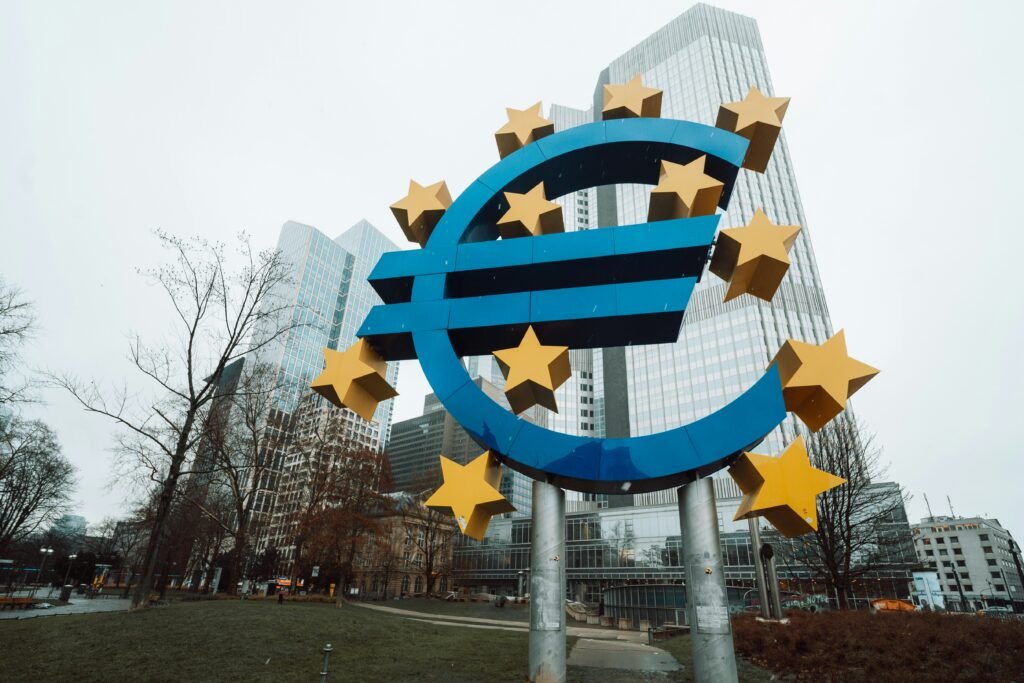European stock markets rallied strongly on February 2, 2025, as investor sentiment improved across the continent amid encouraging economic data and optimism over global trade prospects. Key indices in major financial hubs including London, Frankfurt, and Paris posted solid gains, buoyed by robust corporate earnings reports and signs of easing geopolitical tensions that have weighed on markets in recent months.
European equities attract capital amid positive economic signals
The pan-European STOXX 600 index climbed 1.5% on the day, marking one of its best performances in recent weeks. London’s FTSE 100 rose 1.2%, Germany’s DAX added 1.7%, and France’s CAC 40 increased by 1.4%, reflecting a broad-based upswing across sectors ranging from technology and manufacturing to banking and consumer goods.
Investors were encouraged by fresh data indicating stronger-than-expected industrial output in Germany, Europe’s largest economy, and improved manufacturing activity in France and Italy. The European Commission’s latest economic forecast also suggested a modest upward revision to the bloc’s GDP growth projection for 2025, supported by resilient domestic demand and recovering exports.
“European equities are showing renewed appeal as investors recalibrate expectations in light of easing inflationary pressures and a more stable geopolitical environment,” said Martin Keller, senior market analyst at Deutsche Bank. “While uncertainties remain, the market is currently pricing in a constructive outlook for the eurozone economy.”
US market trends and global trade developments boost confidence
The positive momentum in European shares coincided with gains on Wall Street, where the S&P 500 rose 1.3%, bolstered by technology and financial sectors. US economic data showing steady job growth and moderated inflation added to the upbeat mood, reinforcing expectations that the Federal Reserve might adopt a more cautious approach to interest rate hikes in the coming months.
Furthermore, recent diplomatic progress in US-Europe trade talks has eased concerns about tariffs and regulatory barriers, improving prospects for cross-Atlantic commerce. The European Union’s Trade Commissioner, Elena Ramirez, welcomed ongoing negotiations aimed at enhancing market access for European exporters in the US, calling it a “win-win situation” for both sides.
“This development is a significant factor behind the increased capital inflows into European equities,” noted Sofia Lundqvist, portfolio manager at Nordea Asset Management. “Investors are betting on better trade relations, which should support corporate profits and economic growth.”
Sector highlights and corporate earnings drive market gains
Technology stocks led the advance, with companies specializing in software, semiconductors, and cybersecurity reporting strong quarterly results that surpassed analyst expectations. For example, Sweden-based NordicTech posted a 12% increase in net income, attributing the growth to expanding demand for cloud services and AI solutions.
Financials also performed well as major banks across Europe benefited from improved credit quality and a rebound in lending activity. UBS reported a 9% rise in net profit for the fourth quarter, fueled by growth in wealth management and investment banking divisions.
Consumer discretionary stocks saw gains as retail sales data indicated rising household spending, especially in Germany and Spain, suggesting that consumers remain confident despite lingering concerns about energy prices and inflation.
Market risks and outlook: cautious optimism amid potential fluctuations
Despite the rally, experts caution that markets remain vulnerable to shocks, including potential shifts in monetary policy and geopolitical developments. The European Central Bank (ECB) is expected to maintain a cautious stance on interest rates, balancing inflation containment with support for economic growth.
“Investors should remain vigilant as markets can be volatile given the fluid macroeconomic environment,” said Keller. “Geopolitical risks, such as tensions in Eastern Europe or uncertainties around energy supply, could trigger corrections.”
Moreover, upcoming earnings reports and economic data releases will be closely watched for signs of sustained recovery or new headwinds. Analysts emphasize the importance of diversification and a long-term perspective amid short-term fluctuations.
Conclusion
The surge in European shares on February 2 reflects growing investor confidence in the region’s economic prospects and the improving global trade landscape. Supported by strong corporate earnings, positive economic data, and easing geopolitical tensions, European equities are currently attracting capital from domestic and international investors alike.
However, market participants should approach the rally with measured caution given ongoing uncertainties. A balanced strategy that monitors key risks and opportunities will be essential for navigating the dynamic financial landscape in the coming months.
Disclaimer: This article is for informational purposes only and does not constitute financial advice.


















